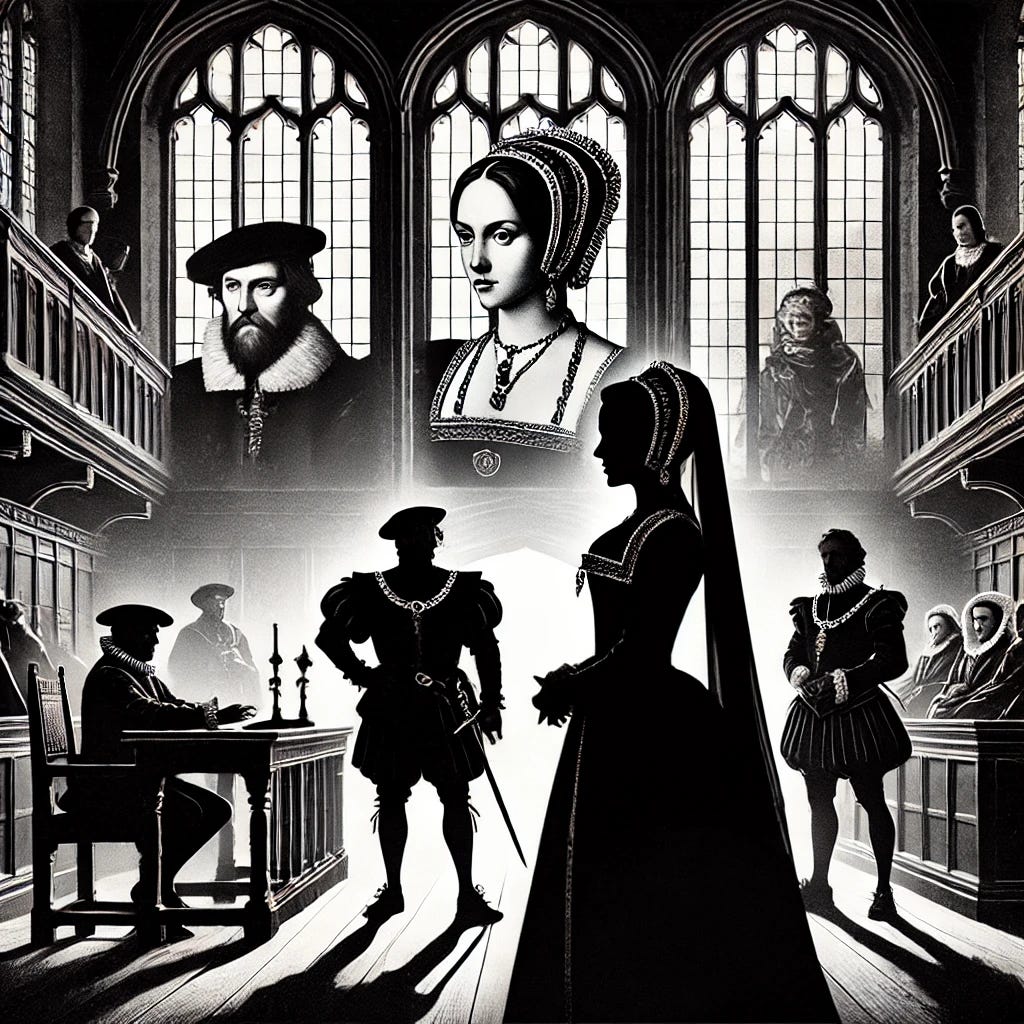WOLF HALL: A short review
I laboured through Hilary Mantell's Man Booker winner, and loved it by the end
I first picked up Wolf Hall in my last year of high school, as a seventeen-year old. I was working my way through the list of Man Booker winners, and Wolf Hall by Hilary Mantell had recently won the 2009 prize. Like many of the other books on that list, it was a book attempted too young. I failed to get past the first few chapters, but even then I was intrigued.
A decade and a half later, I tried again.
I must admit it took some force of will to get through the first third. This is not a beach read, casually sampled in 20-minute bites. You must immerse yourself in Old England. With queens and bishops, in palace politics, in law and stories and scripture. (And so many names!) This is a story critical in the history of Britain. Wolf Hall is a complex tapestry of Europe’s changing attitudes to court and church, of civilisational unrest. It is historical fiction, but even more so, it is a character study, of powerful figures striving in times that withstood great social change.
Wolf Hall sees a time of Protestant revolution. The Catholic order suppresses all attempts at a personal God. God is granted through Catholicism, through Pope and Bishops and the Holy Order. Bible copies threaten this order - readers are burnt and disemboweled by the clergy. And Henry VIII, King of England, sits unhappy at court with a wife - a queen - that has failed him: one daughter and no heir. He is easily entranced by a vixen, a Boleyn Lady called Anne, whispering in his ear that neither Pope nor God can prevent their union. A heretic King, out to rearrange his matrimonial relationships and the soft and hard laws required to sustain a new position with church and state.
Another man sees this opportunity to slide the balance of power. And this man is the narrative focus of Hilary Mantell’s book. You will meet many Thomas’s, and at least five Mary’s, You will struggle to make sense of who is married to whom, who is sleeping with whom, how the ancestry of English monarchy has unfolded, and which characters to root for. But when you get your head around the details, the book will thrill and satisfy.
In Wolf Hall, there is but one Thomas that matters. Thomas Cromwell. An ugly renaissance figure - layered in the mud, in letters, in business, in politics. A man that understands power perfectly - it is who you know, what you know, when to know it, how to know it. A “wall” of a man, as generous as he is ruthless, a brawler, a lawyer, a merchant, a writer, a diplomat, a low man in high places. You root for Cromwell - he is loyal, kind to the hungry outside his gate, lovely to his daughters - but you will not trust him. His mind is palatial: full of figures, and maps, and plans. At a time when order is fixed, and power absolute - Cromwell sees the world as malleable. Church can be moved by state, men can be moved by desire, and money moves everything. Cromwell moves primarily with information: Dukes in debt, spies in Cromwell’s debt, and a King and his lover soon to be indebted.
Cromwell rises from the mismatched cobblestones at Putney, beaten down bloody by his foul Blacksmith father, to the sides of Cardinals and Kings at Westminster. Cromwell is always hard to describe: with relentless resourcefulness, a sense of taste, a sense of timing, an understanding of the law and the real remit of God.
The famed biographer Robert Caro selects the subjects of his books (Robert Moses, LBJ) in order to understand how they came to power - hoe they wielded political power - therefore Cromwell is a top Caro contender. To understand Cromwell, and this story, is to understand influence. Social, financial, spiritual, societal. By the end of this novel you may see the world as Cromwell did, more malleable than you thought.
Hilary Mantell is a quite brilliant prose writer. Eyes become abacuses, words are weapons, and characters show their shadows in the dim light of 1530s London. The tide of the Thames will fill your minds eye as it reflects the hazy sun.
Writing like this scares me. That a mind can be so inventive and so ordered. Historical fiction with events in sequence, subjects in detail, but with prose that will have you re-reading every second line. Wolf Hall is a work of note, with devilish humour and a bloody heart. And it keeps beating. This is the first of a trilogy. The next book Bring Up the Bodies also won the Booker - which should tell you something.
But for the moment, I need a break from the mess of the Tudor court. I’ve picked up Sally Rooney’s latest (Intermezzo) softly off the over-priced shelf before I come back for Cromwell’s next chapter. Which, if it’s anything like Wolf Hall, must be incredible.




